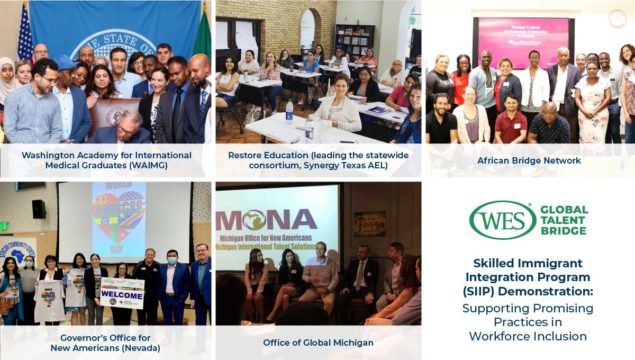Born in Panama and educated in Brazil, Elisa Tristan-Cheever was the youngest graduate in her medical school class of 1989 and one of the first female hospital residents specializing in urology in Brazil. Over 11 years as a practicing surgeon in Brazil, she served patients in remote clinics and large hospitals. Fluent in three languages, she has received training in several countries, including as a visiting surgeon at both Harvard Medical School and Boston Children’s Hospital.
“I’ve wanted to be a physician since I was two years old. What I always thought was to dedicate my skills to everyone, especially to the most vulnerable communities. I want to put in practice all my years working in Brazil, starting with my first year of medical school when I worked with sugar cane workers and other lower-income people,” said Dr. Tristan-Cheever. However, Dr. Tristan-Cheever’s credentials and international experience were not recognized when she relocated to Massachusetts in 2001. Prevented from practicing medicine, she worked several jobs—at a donut shop, a laundromat, a pizza shop, and as a house cleaner—to support her family. At the end of 2001, the now former clinician began a role as a secretary at a walk-in clinic in Lawrence, Massachusetts. This was the first in a series of jobs, including community health worker and medical interpreter, that helped her rejoin the health field.
Since relocating, Dr. Tristan-Cheever completed a master’s degree in public health at Northeastern University and now works as a clinical liaison with a health system in Boston. She is also finishing a doctoral degree in health education at the University of São Paulo in Brazil. She still hopes to resume her work as a surgeon. Yet without completing U.S. medical licensing exams and re-doing her residency in the U.S.—a process that costs tens of thousands of dollars and takes years to complete—her goal of practicing medicine in the U.S. remains out of reach.
“My American Dream is to again practice as a surgeon here. That goal has been with me at every moment since I arrived in this country more than two decades ago,” she said. “My knowledge and experience have not yet been recognized here, but I haven’t lost hope.”
Massachusetts Faces Critical Health Care Shortages
According to the Migration Policy Institute, Dr. Tristan-Cheever is one of 3,000 immigrants and refugees in Massachusetts who have health credentials from another country that are not fully utilized in the local workforce. At the same time, the state faces significant gaps in primary care, mental health, and dental staffing. Hundreds of thousands of residents in the state are medically underserved, with over 130 communities in Massachusetts having been designated as Health Professional Shortage Areas (HPSAs) by the U.S. Department of Health and Human Services.
To ensure access to quality care for all patients, efforts to address health care provider shortages must also include policies that advance employment equity and inclusion. Studies have found that patient outcomes improve when health care systems reflect patients’ ethnic and racial background. Patient-provider concordance, or patients being treated by providers of the same skin color and culture, results in statistically significant improvements in patient treatment and recovery.
Internationally trained health workers are essential to expanding and improving medical services in underserved areas of Massachusetts, especially immigrant communities. However, systemic barriers, including limited recognition of international credentials under current state licensing laws, often impede their employment opportunities.
To address these issues, Massachusetts created the Foreign-Trained Medical Professionals Commission, which recently completed a nine-month study on licensing for internationally trained health workers. The interagency, cross-sector commission reviewed law and licensing regulations related to physicians, nurses, dentists, and physician assistants, as well as barriers facing internationally trained health professionals more broadly. The commission’s report, issued in July 2022, provides forward-looking recommendations to strengthen medical care in the state.
Groundbreaking Report Offers a Way Forward
The Foreign-Trained Medical Professionals Commission was established through legislation in 2019 to conduct a study and make recommendations to promote the inclusion of internationally trained health providers in the state’s workforce. Commission membership included IMPRINT Coalition member MIRA (Massachusetts Immigrant and Refugee Advocacy Coalition). Experts from WES and the Welcome Back Initiative also advised the commission.
The Commission’s report proposes short-, medium-, and long-term recommendations, including both administrative and legislative changes. Highlights include:
- Establishing an alternative pathway to full state licensure for internationally trained physicians and dentists through one to two years of mentored practice under a limited license followed by two to four years work in a medically underserved area
- Reducing the residency requirement for international medical graduates (IMGs) from three years to two, and establishing a state-supported program to facilitate IMG access to residencies
- Expanding English proficiency testing options for internationally trained nurses, and permitting the use of “superscoring,” in which a candidate may submit an aggregate test score comprising their best performance on each module of multiple test sittings
- Expanding the number of credential evaluation services accepted for nursing licensure
- Allowing licensure by endorsement of internationally trained nurses already licensed in other states without requiring them to repeat English proficiency testing or procure new credential evaluations
As a result of the report, the Massachusetts Board of Nursing has already added five new English proficiency testing options. Additional recommendations include improving available online licensing information, expanding the scope of and funding for the Boston Welcome Back Center at Bunker Hill Community College, and providing financial assistance for internationally trained health workers navigating the licensure process.
In making these recommendations, the report marks significant progress toward promoting workforce inclusion. The recommended changes will also help the state meet workforce needs and improve access to quality health care for all Massachusetts residents.
“Significantly, the commission’s recommendations would not just provide pathways to practice for qualified physicians, nurses, and dentists, but will also create incentives for practicing in underserved regions and populations of our state,” said Elizabeth Sweet, executive director at MIRA.
A Roadmap for Other States
Massachusetts is one of many states struggling to address health care provider shortages. Analysts predict that without changes to current nurse staffing systems, the United States will continue to face a critical nursing shortage through at least 2030. In addition, the U.S. can expect a shortage of between 37,800 and 124,000 physicians by 2034.
The trailblazing work of the Foreign-Trained Medical Professionals Commission offers a promising way forward for states interested in promoting equitable access to health care licensure. “The report serves as an excellent roadmap for Massachusetts and other states committed to addressing employment gaps and building inclusive, responsive health care systems,” said Jeff Gross, senior advisor at World Education Services.
“My passion is to work with the community,” Dr. Tristan-Cheever said. “I am an excellent doctor with a proven track record. If given the opportunity, I am ready to share my skills and experience with my community.” As Massachusetts begins to implement the report’s recommendations, Dr. Tristan-Cheever is optimistic that she—and thousands of internationally trained health workers like her—will serve patients once again.



